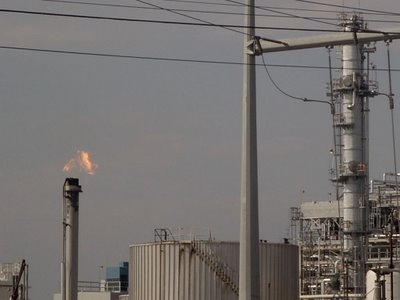The dangerous and illegal "upset conditions" loophole is on track to be eliminated this fall. This Thursday August 17, the Colorado Air Pollution Control Division is slated to formally request the Air Quality Control Commission eliminate the loophole through a rulemaking. The meeting starts at 9:00 A.M. in the Sabin Room at the Colorado Department of Public Health and Environment.
The loophole, which exempts compliance with the Clean Air Act during "Upset Conditions and Breakdowns," allows polluters to endanger public health and welfare and avoid compliance with clean air laws and regulations.
On December 22, 2005, Rocky Mountain Clean Air Action filed a petition with the U.S. Environmental Protection Agency (EPA) to require the state of Colorado to finally eliminate the loophole . In response, the EPA threatened to change Colorado regulations itself if the state did not act, stating "[I]f the AQCC [air quality control commission] does not expeditiously adopt changes to the upset rule that are consistent with the Clean Air Act, we intend to propose a SIP [state implementation plan] call using our notice and comment rulemaking authority."
Polluters in Colorado have used the loophole extensively to avoid being held accountable to clean air laws and public health and welfare. Data from the state of Colorado shows that since 1999, two facilities--the Holcim cement plant near Florence and Tri-State Generation's Craig coal-fired power plant--have claimed over 300 upsets. Most recently, state data shows that the CEMEX cement plant near Lyons used the loophole to get out of complying with limits on dioxin emissions on May 23, 2005.

Upsets are also a threat to ambient air quality, especially in the Denver metro area. A review of data on file with the state shows that between 2001-2006, the Suncor oil refinery north of Denver (picture above) and the BP Wattenberg natural gas processing plant east of Denver experienced 66 and 79 upsets, respectively, all related to the emission of ozone forming compounds. Just in 2005, the BP Wattenberg gas plant experienced an upset that released ozone forming compounds for over 90 days. In light of dangerously high ozone, these upsets pose serious threats to ambient air and human health.
Hopefully the Air Quality Control Commission will eliminate this loophole as soon as possible to protect our clean air.


1 Comments:
I'm not certain as I haven't had a chance to go through state records in detail to see what was reported. It seems like it may not be, but for some sources, like this flare, it's hard to tell upsets just by looking.
This is one more example of why this loophole needs to be eliminated. We need to be able to know for certain whether or not we're seeing unhealthy and illegal pollution.
Post a Comment
<< Home